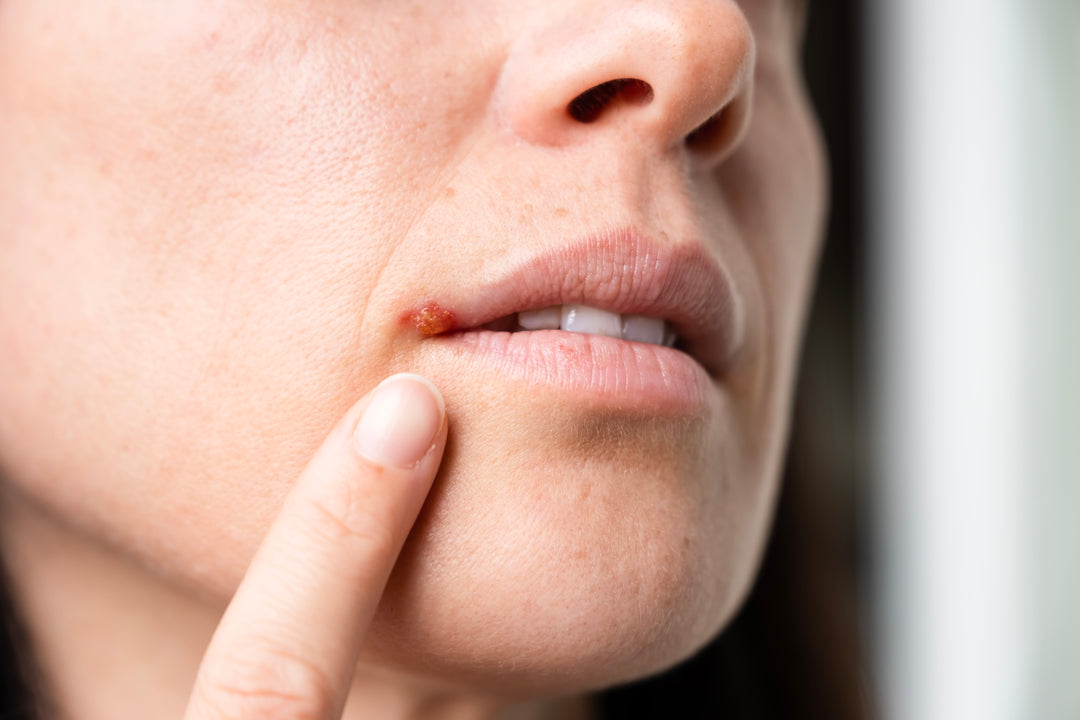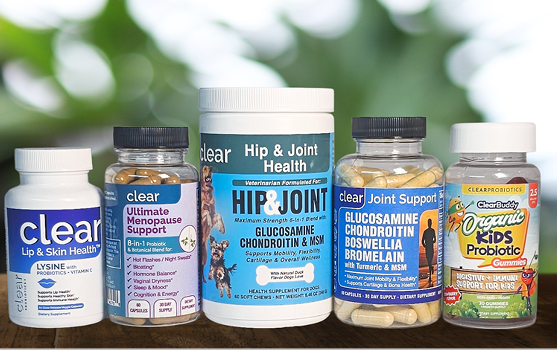Can Vitamin B Supplements Cause Anxiety?
Can vitamin B supplements cause anxiety? It's commonly known that high levels of caffeinate can cause feelings of anxiety, sleeplessness, and jitters. Since some B vitamins affect the same pathways that stimulants do, they could lead to the same states of anxiety, stress, and panic.
Some people report that taking vitamin B supplements can cause anxiety or make existing anxiety worse.
If you are considering taking supplements but are worried can vitamin B supplements cause anxiety, it is important to speak with your doctor first to see if they are right for you.
Table of Contents
What Are Vitamin B Supplements?
There are many vitamins and supplements out there that claim to help with anxiety, but can vitamin B supplements cause anxiety?
Let's take a closer look.
Vitamin B is a water-soluble vitamin that is part of the B-complex vitamins. These vitamins are essential for many different functions in the body, including energy metabolism, nervous system function, and red blood cell production.
While some research has shown that vitamin B supplementation can help with anxiety, other research has found no significant effect.
It is possible that the effects of vitamin B on anxiety vary from person to person.
If you are considering taking vitamin B supplements for anxiety, it is important to speak with your doctor first.
Vitamin B supplements can interact with some medications, so it is important to make sure that they are safe for you to take.
Can Vitamin B Supplements Cause Anxiety?
Vitamin B supplements are often touted as a natural way to combat anxiety and boost mood.
However, there is little scientific evidence to support these claims. While some research suggests that vitamin B may help reduce anxiety symptoms, other studies have found no such effects.
It’s also important to note that taking too much vitamin B can actually cause anxiety and other side effects.
Chronic stress and anxiety are extremely common today, and many people are turning to supplements in an attempt to find relief. Unfortunately, some of these supplements may actually be making the problem worse.
One such supplement is vitamin B.
Can vitamin B supplements cause anxiety?
While vitamin B is essential for overall health, taking too much of it can actually lead to increased anxiety and stress levels. This is because vitamin B is a water-soluble vitamin, meaning that it is not stored in the body and needs to be constantly replenished. When someone takes too much vitamin B, it can lead to a build-up of the vitamin in the body, which can then lead to increased anxiety and stress levels.
If you are taking vitamin B supplements and are struggling with chronic stress and anxiety, it may be time to reevaluate your supplement regimen. Talk to your doctor about whether or not you should be taking vitamin B supplements, and if so, how much is safe for you to take.
What's the Relationship Between Vitamin B-12 and Depression?
Certain vitamins, such as B 12, can affect your mood and cognitive function. Deficiencies in any of these nutrients, including B6 and folic acid, have been linked to depression and mood disorders.
Not being able to absorb certain nutrients from food can lead to low levels of specific vitamins and minerals. Seniors, vegans, and people who suffer from Crohn’s disease, for example, may be at higher risk of having low B12 levels.
A vitamin B-12 deficiency can occur for an unknown reason. A doctor can test for it using a blood or urine test.
If you’re deficient in Vitamin B-12, taking a regular dose of a multivitamin with B 12 could help improve your symptoms. However, studies have been inconclusive on whether or not it can actually help prevent or treat depression. Because vitamins like B12 can interfere with some medicines, especially in large quantities, always consult your doctor before taking a dietary supplement.
The best way to get your recommended daily allowance of vitamin B-12 is by eating a healthy, balanced diet. Animal products such as meat, fish, and dairy are good sources, as are fortified cereal.
Keep in mind that although research has linked vitamin B deficiencies to depression and low mood, more studies are needed before doctors can recommend supplements to treat the condition.
Who Is Susceptible to This Effect?
Vitamin B is an essential nutrient that helps the body convert food into energy. It is found in leafy green vegetables, legumes, nuts, and seeds.
Some people may experience anxiety when taking vitamin B supplements. This can be due to the body's inability to absorb the nutrient, or to an underlying medical condition.
Can vitamin B supplements cause anxiety?
If you're feeling anxious, it might be tempting to reach for a supplement to help you feel better. But it's important to remember that not all supplements are created equal.
And while some supplements can help ease anxiety, others can actually cause anxiety or make it worse. So, before you start popping pills, it's important to know which ones are right for you.
 (Source)
(Source)
Here are some things to consider when deciding if a supplement is right for you.
1. Does the supplement have scientific backing?
When it comes to supplements, not all claims are created equal. Make sure to do your research to find out if the supplement you're considering has any scientific backing.
2. What are the possible side effects?
All supplements come with the potential for side effects. Some are more mild, like an upset stomach, while others can be more serious, like anxiety or insomnia.
Make sure to read the label carefully and talk to your doctor before taking any supplement, especially if you have a history of anxiety or other mental health issues.
3. What is the right dosage?
The dosage of a supplement can make a big difference in how it affects you. Be sure to follow the directions on the label and talk to your doctor about what dosage is right for you.
4. What is the supplement made of?
Not all supplements are created equal. Some supplements are made with lower-quality ingredients that may not be as effective.
Make sure to buy supplements from a reputable source and look for ones that are certified by an independent organization like the USP (United States Pharmacopeia).
5. How long will I need to take the supplement?
Some supplements are meant to be taken for a short period of time, while others can be taken long-term. Make sure to talk to your doctor about how long you should take the supplement.
Are There Any Other Risks Associated With Taking Vitamin B Supplements?
The most common side effect of vitamin B supplementation is digestive upset, including nausea, vomiting, and diarrhea. This is usually the result of taking too much vitamin B at once or taking a supplement that contains more than the recommended amount.
Another potential risk is that vitamin B supplements can interact with certain medications, including blood thinners and diabetes medications. If you are taking any medications, it is important to talk to your doctor before taking a vitamin B supplement.
Vitamins are not medicine.
You can’t just pop a pill and expect your health to improve. But taking the right vitamins can help ease anxiety and stress.
Vitamins and minerals are essential nutrients that our bodies need to function properly. They can be found in the food we eat, but sometimes we don’t get enough of them. That’s where supplements come in.
While vitamins won’t cure anxiety or stress, they can help your body better manage them.
Of course, it’s always best to get your nutrients from food first. But if you’re not getting enough of certain vitamins and minerals from your diet, supplements can be a helpful way to fill the gap.
Are you worried about your anxiety levels? Do you feel like you could benefit from some natural anxiolytic support? If so, you may be wondering if vitamin B supplements could help.
Vitamin B is a water-soluble vitamin that plays a role in many important functions in the body, including energy production, nerve function, and red blood cell formation.
There are eight different B vitamins (vitamins B1, B2, B3, B5, B6, B7, B9, and B12), and each has its own unique benefits.
Some research suggests that certain B vitamins may have anxiolytic (anti-anxiety) properties.
For example, vitamin B6 is involved in the production of serotonin, a neurotransmitter that is known to play a role in mood and anxiety.
Vitamin B12 is also involved in the production of serotonin, as well as other neurotransmitters that are linked to mood and anxiety such as dopamine and norepinephrine.
While the research on the anxiety-reducing effects of B vitamins is still preliminary, there is some evidence to suggest that these vitamins could be helpful for reducing anxiety symptoms.
Some supplements can interact with medications or underlying health conditions, and some people may experience side effects such as anxiety. If you are interested in exploring the potential benefits of B vitamins for anxiety, talk to your healthcare provider to see if supplementation could be right for you.
Conclusion
Can vitamin B supplements cause anxiety? Overall, the research on whether or not vitamin B supplements can help with anxiety is mixed. There is some evidence that they may be helpful for some people, but more studies are needed to confirm these findings.
If you're considering taking a vitamin B supplement for anxiety, speak to your doctor first to see if it's right for you.








